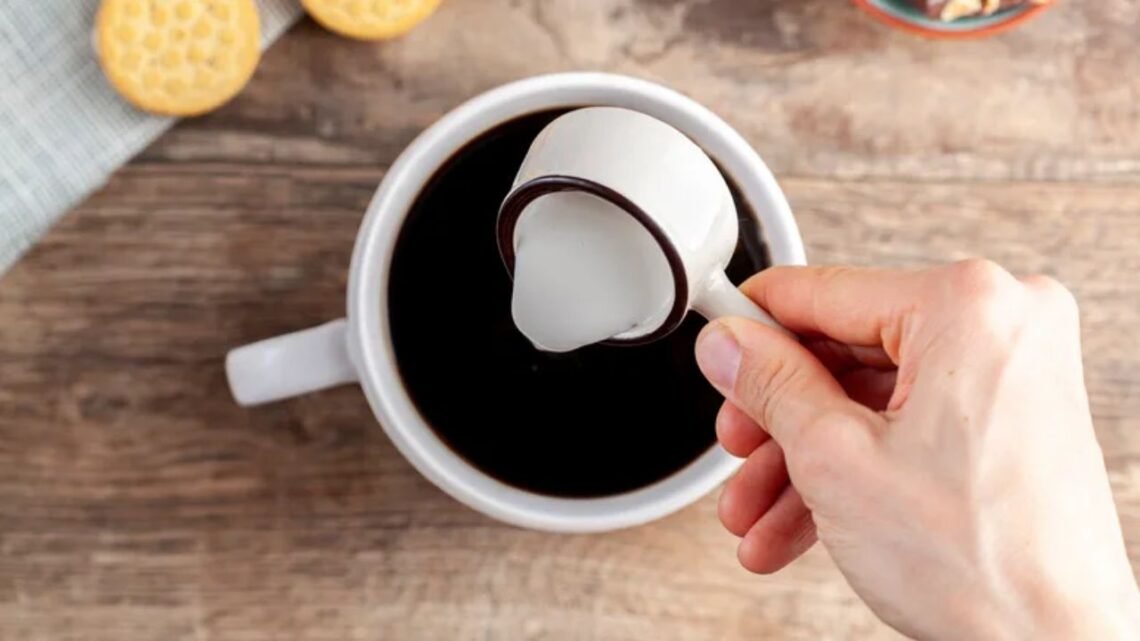A rich and creamy coffee creamer can turn a plain cup of coffee into something truly indulgent. But once that bottle is open, a question arises — how long does coffee creamer actually last before it goes bad?
Whether it’s dairy, non-dairy, liquid, or powdered, knowing the right storage and usage timeline helps you keep your morning brew safe and flavorful.
How Long Coffee Creamer Lasts After Opening
The shelf life of coffee creamer depends on its type, ingredients, and storage method. Here’s a simple breakdown:
| Type of Creamer | Unopened Shelf Life | After Opening | Storage Tips |
|---|---|---|---|
| Liquid dairy creamer | Up to a few months | 7–14 days (refrigerated) | Keep sealed and cold at all times |
| Liquid non-dairy creamer | 1–2 months | Up to 2 weeks (refrigerated) | Shake before use and store on a fridge shelf |
| Powdered dairy or non-dairy creamer | 18–24 months | 3–6 months | Keep tightly sealed in a cool, dry place |
| Shelf-stable single-serve cups | 6–12 months | Use immediately after opening | Store in a cool, dark cabinet |
Tip: Once opened, most liquid creamers should be used within two weeks for best taste and safety.
Why Coffee Creamer Goes Bad
Even the best-stored creamer will eventually spoil due to:
- Air exposure: Opening the container introduces oxygen and bacteria.
- Temperature changes: Frequent fridge door opening causes fluctuations that shorten freshness.
- High sugar and fat content: These ingredients can separate, curdle, or oxidize over time.
- Moisture exposure: Powdered creamers can clump or grow mold when exposed to humidity.
To extend shelf life, always seal the lid tightly and avoid temperature swings.
Proper Storage Methods
Keeping your creamer fresh is easy if you follow these steps:
- Refrigerate immediately after opening (for all perishable creamers).
- Store on a middle or bottom fridge shelf, not the door, to maintain a consistent temperature.
- Avoid leaving liquid creamer at room temperature for more than 2 hours.
- For powdered creamer, keep it away from sunlight and moisture, ideally in an airtight container.
- If you won’t finish a bottle quickly, you can freeze liquid creamer in small portions — thaw in the fridge and shake well before using.
Signs That Coffee Creamer Has Gone Bad
When in doubt, always check before you pour. Discard your creamer immediately if you notice:
- A sour or unpleasant odor instead of a sweet aroma
- Lumps, clumps, or curdling in the texture
- Discoloration or yellowing
- Sour or off taste
- Mold growth inside the lid or bottle
Even if it’s just slightly past its “best by” date, trust your senses — spoiled creamer can ruin your coffee and upset your stomach.
Non-Dairy and Powdered Creamers
- Non-dairy liquid creamers, despite lacking milk, still spoil quickly once opened. Treat them just like regular creamers and finish within two weeks.
- Powdered creamers are more forgiving. If stored correctly, they can last up to two years unopened and around six months once opened.
- Shelf-stable mini cups are designed for convenience — keep them in a cool, dark pantry and use immediately after opening.
Once opened, coffee creamer generally stays good for 7–14 days if refrigerated and handled properly. Powdered and shelf-stable creamers last longer but still require proper storage to retain quality.
Always check for signs of spoilage before use — a sour smell, clumps, or discoloration mean it’s time to toss it.
By keeping your creamer sealed, cold, and stored correctly, you’ll enjoy a smooth, safe, and delicious cup of coffee every single morning — just the way you like it.
FAQs
Can I still use coffee creamer after the “best by” date?
If unopened and stored properly, yes, but once opened, rely on smell and texture rather than the printed date.
How long can creamer sit out before it spoils?
No more than two hours at room temperature for any liquid variety.
Can I freeze my coffee creamer to extend its life?
Yes, freezing is safe for most types. Pour into ice cube trays and thaw as needed — just note that texture may change slightly.









